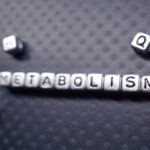The scientific reasons you should eat meat

We all know we should eat nutritious foods. But what is nutritious? In today’s world, almost any food can be defined as nutritious. It simply depends on how you view the health of that food.
But not all foods are created equal.
In the nutrition and wellness space, we like to use the term “nutrient-dense” rather than “nutritious,” as it is more specific.
Nutrient density refers to foods with high concentrations of macro and micronutrients. Macronutrients are the proteins, fats and carbohydrates of our diet and micronutrients are the vitamins, minerals and other trace elements of our diet.
Our bodies require a mix of both macro and micronutrients to be at our best. We need approximately 35-40 different micronutrients for normal function. Maximizing nutrient density should be our primary goal when choosing foods for ourselves and our loved ones.
When we consider nutrient-dense foods, we are left with real, whole foods from plants and animals.
The human body needs nutrient-dense food sources and bioavailable sources, meaning the body can break down the food and absorb nutrients properly. This is where meat shines over plant-based foods.
Non-heme iron, for example, has to be broken down to be better absorbed in the body, whereas you can eat heme iron from animal meats.
When I was plant-based for twelve years, I had 16 oz of spinach, daily. After ten years, I was diagnosed with anemia and was recommended to supplement iron. Where was all that rich iron from spinach?[1]
Beta-carotene, from carrots, is another example. We think beta-carotene is good for eye health, and it can be, but requires conversion in the body for absorption. Carrots contain the provitamin A form of Vitamin A (carotenoids) while animal meats contain the preformed vitamin A from (retinol). Preformed vitamin A from animal meats are more bioavailable for the body.
We don’t think of these nuances when considering nutrition or selecting vitamin supplements.
The body’s ability to convert nutrients depends on factors such as gut health, genetics, disease, and even antinutrients—toxins in plant-based foods to protect the survival of the plants.
When we have poor gut health, we hinder the ability to break down, convert, and absorb these nutrients even further. For people with poor gut health, meat provides the best chance at absorbing bioavailable nutrients.
There are many nutrients lacking or deficient in a plant-based diet:
-
-
- Vitamin B12
- Vitamin D3
- Vitamin K2
- Vitamin E
- EPA/DHA (the flaxseed ALA versions are not easily converted into EPA and DHA. Some people completely miss the genetic conversion).
- Heme-iron
- Taurine
- Zinc
- Creatine
-
Meat also has the perfect balance of proteins and fats. We need fat to fuel our brain as our brain is about 60% fat.[2] The brain makes up about 2% of our body weight but consumes 20-30% of total calories. The brain needs proper fuel.
Essentially, our body views food as broken-down nutrients. Whether we get vitamin C from an orange or salmon, it doesn’t matter to our bodies. Meats also have antioxidants. Yes, salmon has a decent amount of vitamin C. 7% of your DV for 6 ounces of salmon and contains the antioxidant astaxanthin.
Selenium is another example of an antioxidant. It is rich in ribeye steaks, salmon, chicken, pork belly, and eggs.
According to the USDA food database, a 3.5 ounce (100 gram) portion of red meat (beef) contains:[3]
-
-
- Vitamin B3 (Niacin): 22% of the Recommended Daily Allowance (RDA).
- Vitamin B6 (Pyridoxine): 23% of the RDA.
- Vitamin B12 (Cobalamin): 134% of the RDA.
- Vitamin B12 does not exist in plant-based foods.
- Iron: 15%. Note that this is heme-iron, which is better absorbed than non-heme iron from plant-based foods like spinach. Remember, most plant-based nutrients need to be converted into the bioavailable form before being utilized by the body.
- Zinc: 71% of the RDA.
- Selenium: 46% of the RDA.
-
Remember, these numbers are in just 3.5 ounces of red meat. Most people eat more than 3.5 ounces in a meal. The graphic below doesn’t include all the amino acids (the building blocks in the body) in red meat. For example, red meat is rich in creatine and carnosine, amino acids that non-meat eaters are usually deficient in and can impact muscle and brain function.
Meat for Mental Health
Serotonin dysfunction is implied in major depression and also with suicide. Serotonin is a neurotransmitter that is produced in the intestines and the brain. (A reason your gut biome and proper digestion are critical.) Serotonin cannot pass the blood-brain barrier and thus, serotonin used in the brain must be made in the brain– A brain that is 60% fat.
95% of serotonin is in the gut. [4]
Did you know that serotonin is mostly in the gut?
Serotonin regulates mood, anxiety, and fear. And while serotonin in the gut can’t cross into the brain, it does transmit signals to one another (hence a neurotransmitter).
Studies show that IBS-C patients have an imbalance in serotonin transmission, causing GI hormones and neurotransmitters alterations. Deficient serotonin seems to be associated with constipation.[5]
Low serotonin contributes to increased anxiety and poor sleep but Increasing serotonin via tryptophan has shown to improve sleep.[6]
Where Does Serotonin Come From?
Serotonin requires B-vitamins, tryptophan and omega-3 fats to be made.
-
-
- Eating foods with tryptophan (an essential amino acid/protein) can help produce more serotonin.
- However, you need Niacin (vitamin B3) to help boost tryptophan.
- You also need vitamin B6 to convert tryptophan to serotonin.
- Folic Acid (vitamin B9) also helps your body make serotonin.
- Vitamin D activates genes in the body responsible for neurotransmitter release (e.g., serotonin).
-
And what foods have the vitamin B complex and vitamin D? All the varieties of meats and dairy products contain these nutrients.
Eat the Meat
Not only is meat tasty, you should also eat red meat for optimal health. If you consider the bioavailability of nutrients, you will have a better chance of absorbing the nutrients from meats than any other plant-based food.
There is a reason why all elimination diets, even in clinical settings, have one thing in common: they all include animal meat.
Animal meat nourishes the body with its high-quality protein and fat content. It is the best fuel for the body and the brain (and hormones and every function in the human body).
Health Benefits of Red Meat:
-
-
- Heart Health
- Growth and Maintenance
- Strong Bones and Teeth
- Healthy Skin, Hair, and Nails
- Healthy Vision
- Mental Function
- Anti-Fatigue Factor
- Immune Function
- Natural Antioxidants
- Hormone Regulation
-
One recommendation is to eat your meat away from foods rich in carbohydrates. The excess carbohydrates paired with meats (high fat and protein) aren’t ideal for optimal health. (Reference Randle Cycle)[7]
Whether you eat a steak, lamb or pork, your body will thank you for it.
Judy Cho is board certified in holistic nutrition and a certified nutritional therapy practitioner and the author of Carnivore Cure, Meat-Based Nutrition and the ultimate elimination diet for optimal health. She holds a Psychology and Communications degree from the University of California, Berkeley. Judy has a private practice, focusing on root-cause healing and gut health with Carnivore Cure’s meat-only elimination diet. Learn more at nutritionwithjudy.com
References
- https://fdc.nal.usda.gov/ndb/search
- https://pubmed.ncbi.nlm.nih.gov/20329590/
- https://fdc.nal.usda.gov/
- https://pubmed.ncbi.nlm.nih.gov/29909048/
- https://www.ncbi.nlm.nih.gov/labs/pmc/articles/PMC5772764/
- https://www.ncbi.nlm.nih.gov/labs/pmc/articles/PMC6520871/
- https://www.sciencedirect.com/topics/biochemistry-genetics-and-molecular-biology/randle-cycle
This article is for informational and educational purposes only. It is not, nor is it intended to be substitute for professional medical advice, diagnosis, or treatment and should never be relied upon for specific medical advice.

















